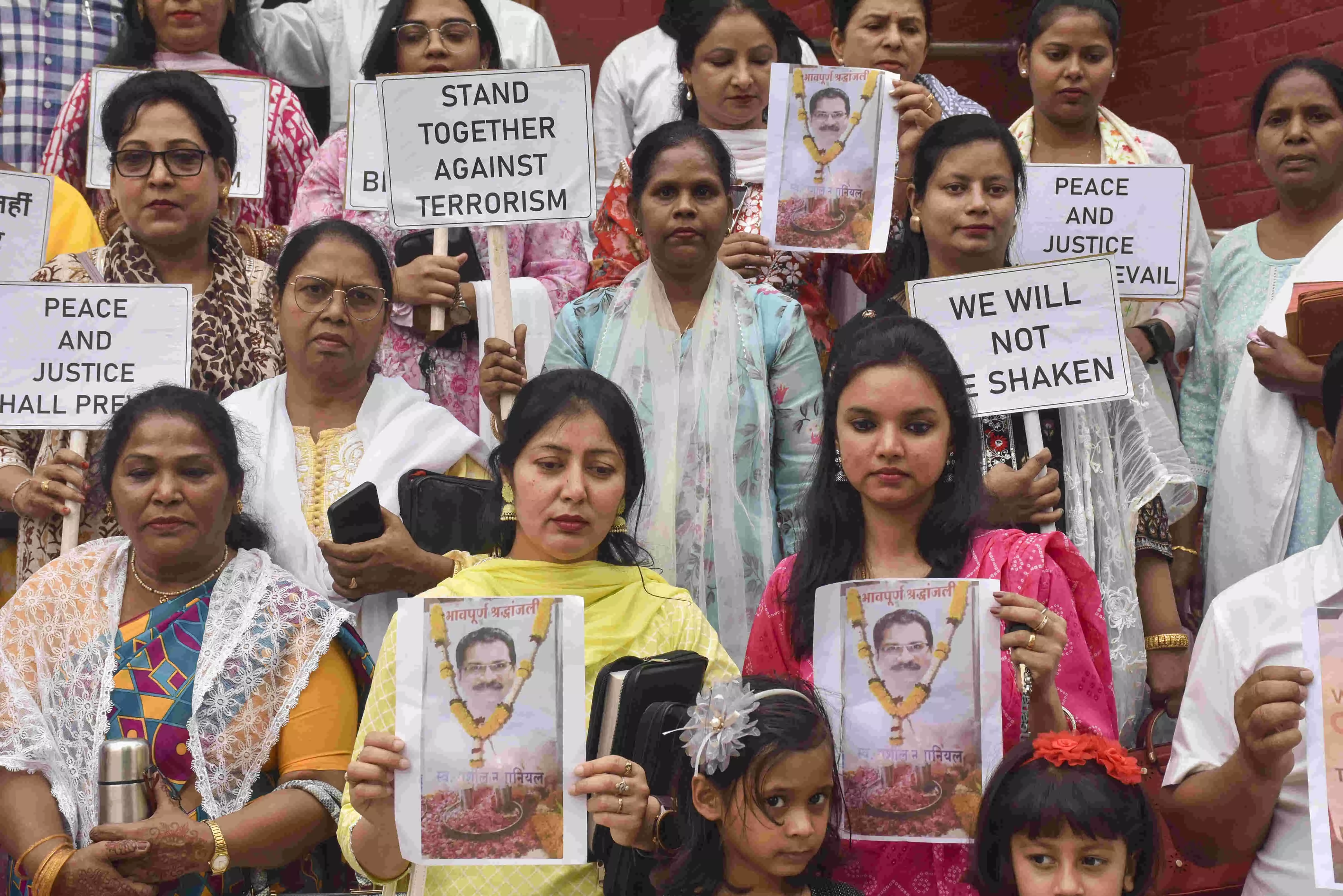Shamelessly Stubborn

Considering the heinous nature of the Pahalgam attack and Pakistan’s shameless stubbornness to further back its actions, it must be said that the time for diplomatic niceties is over. The terrorists—and those who back them—need to be dealt with the strictest hand possible. The unrelenting wave of ceasefire violations by Pakistan, continuing for the eighth consecutive night on Thursday, is clearly a part of a larger, sinister pattern. In contrast, the response of the Indian Army has been “calibrated and proportionate.” Such an approach is appreciable because the battlefield is just one part of warfare. India is also filling the other blanks by strategising multisectoral, hard-hitting responses. Terrorism is a global scourge and India, at this critical juncture, has the onus of roping in global powers to fight against the same. In doing so, it will have to synchronise the level of its military response with globally acceptable standards while also pushing the boundaries outwards with extraordinary deft and finesse. Pakistan has to be exposed to the point where nurturing terrorism would become an untenable alternative on its part.
According to initial findings by the National Investigation Agency, the attack bore the unmistakable imprint of Pakistan’s Inter-Services Intelligence and the Lashkar-e-Taiba. The conspiracy was allegedly planned at Lashkar’s headquarters in Pakistan, and the attackers are said to have received instructions directly from handlers across the border. The Pahalgam attack is an undeniable evidence of cross-border terrorism being treated as policy by the Pakistani state. And this time around, India should go beyond mere words of condemnation or a diplomatic démarche. India’s decision to consider action on two specific financial fronts—pushing for Pakistan’s re-entry into the FATF grey list and raising objections at the IMF—is among its most satisfactory decisions post the Pahalgam attack. For far too long, Pakistan has weaponised financial aid meant for economic development and diverted it to fund terror. In 2018, when Pakistan was placed on the grey list, it had to act—reluctantly, but decisively—against some of its most notorious terror operatives. That pressure worked. Now, with renewed bloodshed on Indian soil, it is time to restore that pressure. India has already received messages of support from 23 member countries of FATF, including the United States, France, Germany, and Saudi Arabia. That solidarity must now translate into action. The suspension of the Indus Water Treaty is, of course, a cherry on the top.
It is ironic that rather than introspecting on its misadventures, Islamabad has chosen the path of escalation through ceasefire violations. Its shameless intent today stands naked before the world. Even as its economy is on the brink and it continues to depend on IMF bailouts, its military establishment is allegedly and shamelessly channelising time and resources to provoke and plan acts of terror. This is an insane disservice to the people of Pakistan as well, and must be called out unequivocally.
The US Vice President and other officials have urged India to act with restraint, but such an appeal fails to recognise the underlying imbalance, created deliberately by Pakistan. The burden of being a responsible power cannot lie solely on India’s shoulders. It is time the world demanded the same from Pakistan. If peace is to have any real meaning in South Asia, then terror cannot be allowed to remain a legitimate tool of foreign policy—covertly or overtly. Pakistan Army Chief General Asim Munir’s aggressive rhetoric about a “swift and resolute” response to any Indian military move reeks of hypocrisy. Pak cannot simultaneously claim to be committed to peace and host terror operatives on its soil. It cannot call for dialogue while its soldiers and notorious proxies fire across the LoC night after night. The nation in turmoil cannot expect global sympathy while enabling massacres like the one in Pahalgam. India has thus far shown restraint, dignity, and strength. But patience has its limit. If Pakistan continues to provoke, even through its proxy terrorists, India has every right and reason to respond. The response has to strike at the very heart of what sustains Pakistan’s terror machinery—its finances, its credibility, and its impunity. India seems to have made its choice, and it should stick to it.



